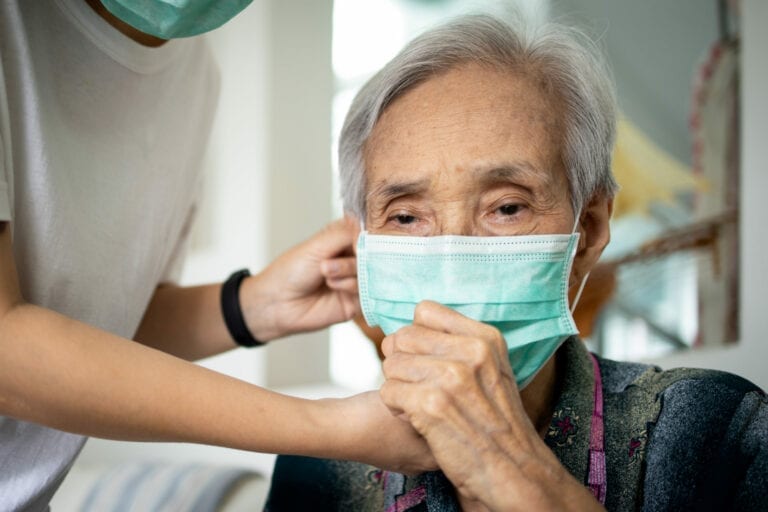Depression in seniors is a concerning issue that can significantly impact their well-being and overall quality of life. Recognizing the signs and symptoms of depression in older adults is crucial for early intervention and support. As a leading home care provider, From The Heart Home Care emphasizes the importance of understanding and addressing this sensitive issue to ensure the holistic health of our beloved seniors.
Table of Contents
- Understanding Depression in Seniors
- Signs and Symptoms of Depression in Seniors
- Importance of Identifying Depression in Seniors
- Risk Factors for Depression in Seniors
- Common Myths Surrounding Senior Depression
- Effect of Depression on Seniors’ Quality of Life
- Tips for Helping Seniors Deal with Depression
- Professional Assistance and Treatment for Senior Depression
- Physical Health Effects of Untreated Depression in Seniors
- Mental Health Support and Therapies for Seniors
- Role of Family and Community in Supporting Depressed Seniors
- Activities and Hobbies to Combat Depression in Seniors
- Diet and Nutrition for Senior Mental Well-being
- Ensuring a Supportive and Healthy Environment for Seniors
- Combating Stigma around Senior Depression
- Creating a Holistic Care Plan for Seniors with Depression
- Encouraging Social Interaction for Seniors
- Preventing Isolation and Loneliness Among Depressed Seniors
- Senior-Friendly Exercise Regimens for Mental and Physical Health
- Improving Sleep Habits to Alleviate Senior Depression
- Promoting Independence and Autonomy in Seniors
- Building a Strong Emotional Support System for Seniors
- Fostering a Sense of Purpose and Fulfillment in Seniors
- Conclusion
Understanding Depression in Seniors
Depression, often misunderstood as a normal part of aging, is a serious medical condition that affects seniors, leading to a persistent feeling of sadness, loss of interest, and a lack of motivation. While it’s not an inevitable consequence of aging, the complexities of this phase of life can make seniors more susceptible to developing depressive symptoms.
Learn More: How to Help Prevent Isolation Among Older Adults
Signs and Symptoms of Depression in Seniors
Recognizing the signs of depression in seniors can be challenging as symptoms may manifest differently compared to younger adults. Some common indications include persistent sadness, loss of appetite, lack of energy, and withdrawal from social activities. Additionally, irritability, aches, and pains without a clear physical cause might also signal underlying depression.
Importance of Identifying Depression in Seniors
Identifying depression in seniors is of paramount importance as it can significantly impact their overall health and well-being. Left untreated, depression can exacerbate existing health conditions, decrease cognitive function, and lead to a decline in physical abilities, potentially reducing the overall quality of life.
Risk Factors for Depression in Seniors
Various factors contribute to the development of depression in seniors. These can range from physical health challenges, chronic pain, or the loss of a loved one, to social isolation and feelings of loneliness. Understanding these risk factors can help in taking proactive measures to prevent and manage depression effectively.
Learn More: The Benefits of Gentle Exercise for Seniors
Common Myths Surrounding Senior Depression
Misconceptions about senior depression can contribute to its underdiagnosis and undertreatment. Addressing common myths such as “seniors are always depressed” or “it’s normal to be depressed in old age” is crucial to promote a better understanding of the complexities of this mental health issue and to encourage timely intervention.
Effect of Depression on Seniors’ Quality of Life
The impact of depression on seniors can be profound, affecting not only their mental and emotional well-being but also their physical health and social connections. Understanding how depression influences various aspects of their lives can foster a more empathetic approach to providing support and care.
Tips for Helping Seniors Deal with Depression
Supporting seniors through depression involves a combination of compassion, understanding, and effective communication. Encouraging open dialogue, engaging them in enjoyable activities, and providing a supportive environment are essential in helping them navigate through this challenging phase of life.
Professional Assistance and Treatment for Senior Depression
In cases where symptoms persist, seeking professional assistance is imperative. From The Heart Home Care emphasizes the importance of consulting healthcare professionals who specialize in senior mental health, ensuring tailored treatment plans that encompass therapy, medication, or a combination of both.
Learn More: Health Benefits and Risks for Seniors Drinking Coffee
Physical Health Effects of Untreated Depression in Seniors
Untreated depression in seniors can have detrimental effects on their physical health, leading to weakened immunity, increased risk of cardiovascular diseases, and a decline in overall physical functionality. Thus, it’s crucial to address mental health concerns alongside physical health for comprehensive well-being.
Mental Health Support and Therapies for Seniors
Various mental health support programs and therapies cater specifically to the needs of seniors. Cognitive behavioral therapy, group therapy, and mindfulness-based interventions have shown promising results in alleviating depressive symptoms, promoting emotional resilience, and fostering a positive outlook on life.
Role of Family and Community in Supporting Depressed Seniors
The support of family and community plays a vital role in uplifting the spirits of depressed seniors. Building a strong support system that encourages open communication and fosters a sense of belonging can significantly contribute to their emotional well-being and overall quality of life.
Activities and Hobbies to Combat Depression in Seniors
Engaging seniors in stimulating activities and hobbies tailored to their interests can significantly alleviate depressive symptoms. Encouraging participation in group activities, hobbies, and volunteer work can promote a sense of purpose, fulfillment, and social connection, fostering emotional well-being.
Diet and Nutrition for Senior Mental Well-being
Proper nutrition plays a crucial role in maintaining mental well-being in seniors. A balanced diet rich in essential nutrients, vitamins, and minerals can significantly impact their mood, cognitive function, and overall mental health. Encouraging healthy eating habits is pivotal in the management and prevention of depression.
Ensuring a Supportive and Healthy Environment for Seniors
Creating a supportive and healthy environment for seniors involves fostering a sense of security, comfort, and belonging. From The Heart Home Care emphasizes the significance of promoting a safe and nurturing space that encourages emotional expression, social interaction, and a sense of independence for seniors.
Combating Stigma around Senior Depression
Overcoming the stigma surrounding senior depression is crucial in creating an inclusive and understanding environment. Educating the community about the realities of senior depression and advocating for empathy and support can contribute to the holistic well-being of our beloved seniors.
Learn More: Strategies for managing depression in older adults
Creating a Holistic Care Plan for Seniors with Depression
Developing a holistic care plan that addresses the physical, emotional, and social needs of seniors is essential in managing and treating depression. This comprehensive approach integrates personalized support, therapy, and lifestyle modifications, aiming to enhance their overall quality of life and well-being.
Encouraging Social Interaction for Seniors
Encouraging regular social interaction is crucial in preventing and managing depression in seniors. Organizing social events, support groups, and interactive sessions can foster a sense of belonging, reduce feelings of isolation, and promote emotional well-being among seniors.
Preventing Isolation and Loneliness Among Depressed Seniors
Preventing isolation and loneliness is vital in the well-being of seniors dealing with depression. Creating opportunities for social engagement, fostering connections with peers, and facilitating regular communication with loved ones are effective strategies to prevent feelings of isolation and promote a sense of belonging.
Senior-Friendly Exercise Regimens for Mental and Physical Health
Physical exercise tailored to the specific needs of seniors can significantly contribute to their mental and physical well-being. From gentle yoga to light aerobic exercises, engaging in regular physical activities can boost mood, improve cognitive function, and enhance overall quality of life for seniors with depression.
Improving Sleep Habits to Alleviate Senior Depression
Ensuring proper sleep hygiene is essential in alleviating depressive symptoms among seniors. Creating a comfortable sleep environment, maintaining a regular sleep schedule, and incorporating relaxation techniques can contribute to improved sleep quality, thereby positively impacting their mental well-being.
Promoting Independence and Autonomy in Seniors
Encouraging independence and autonomy in seniors is crucial in maintaining their sense of purpose and self-worth. From The Heart Home Care emphasizes the significance of empowering seniors to make their own decisions and engage in activities that promote a sense of accomplishment and fulfillment.
Building a Strong Emotional Support System for Seniors
Establishing a strong emotional support system is vital in providing seniors with the necessary emotional guidance and reassurance. Creating an environment where they feel heard, understood, and supported can significantly contribute to their emotional well-being and overall mental health.
Fostering a Sense of Purpose and Fulfillment in Seniors
Fostering a sense of purpose and fulfillment in seniors is essential in combating feelings of worthlessness and hopelessness associated with depression. Encouraging participation in meaningful activities, hobbies, and volunteer work can instill a sense of achievement and joy, enhancing their overall quality of life.
Conclusion
In conclusion, recognizing and addressing the signs of depression in seniors is crucial in ensuring their overall well-being and quality of life. From The Heart Home Care advocates for a comprehensive approach that emphasizes empathy, support, and a holistic understanding of the unique challenges faced by our beloved seniors. By promoting awareness, fostering a supportive environment, and providing specialized care, we can contribute to the emotional and physical well-being of our senior community.







